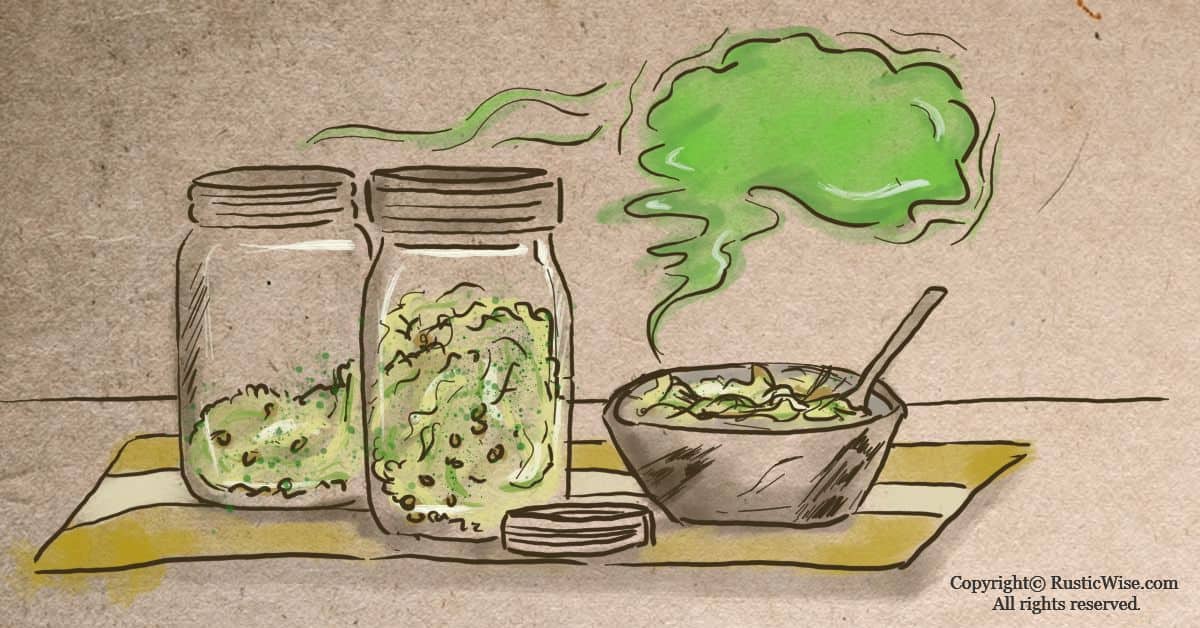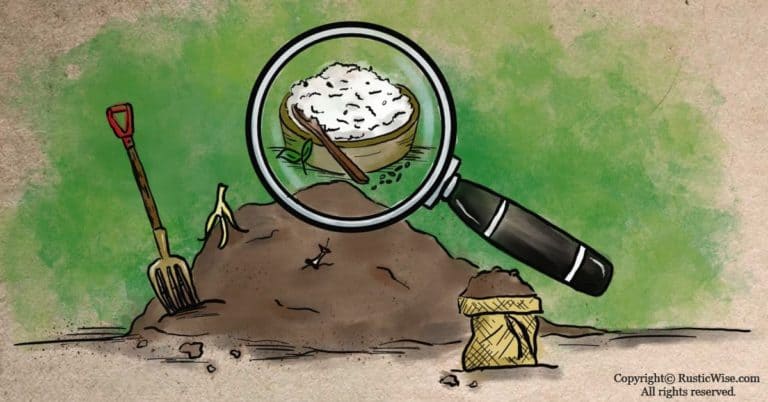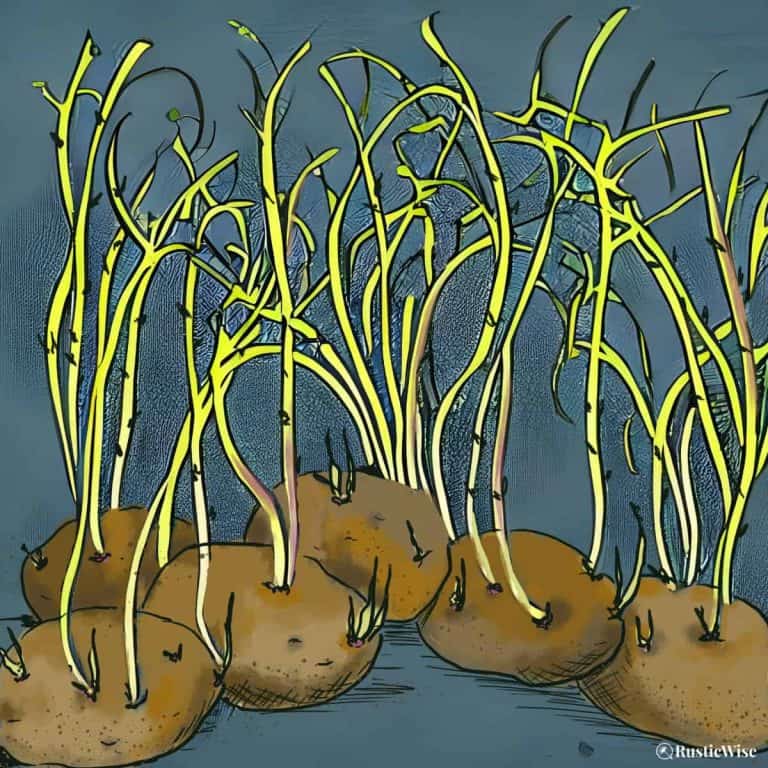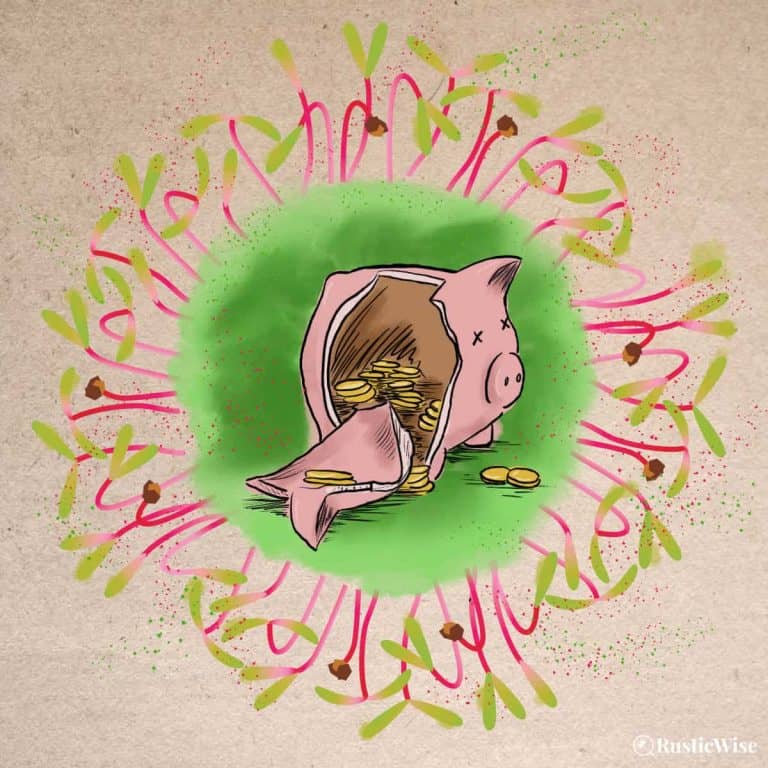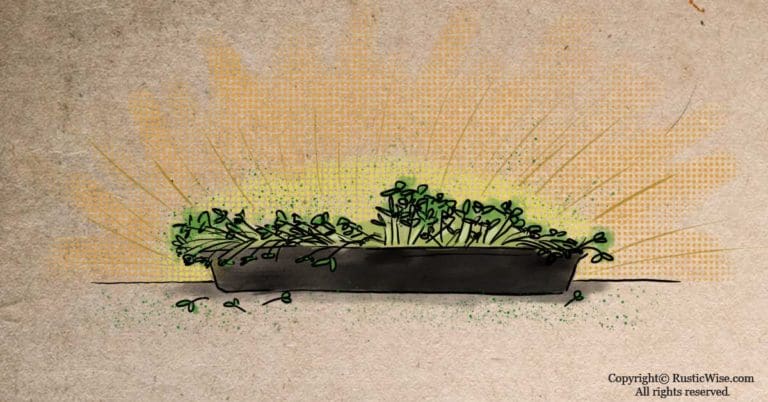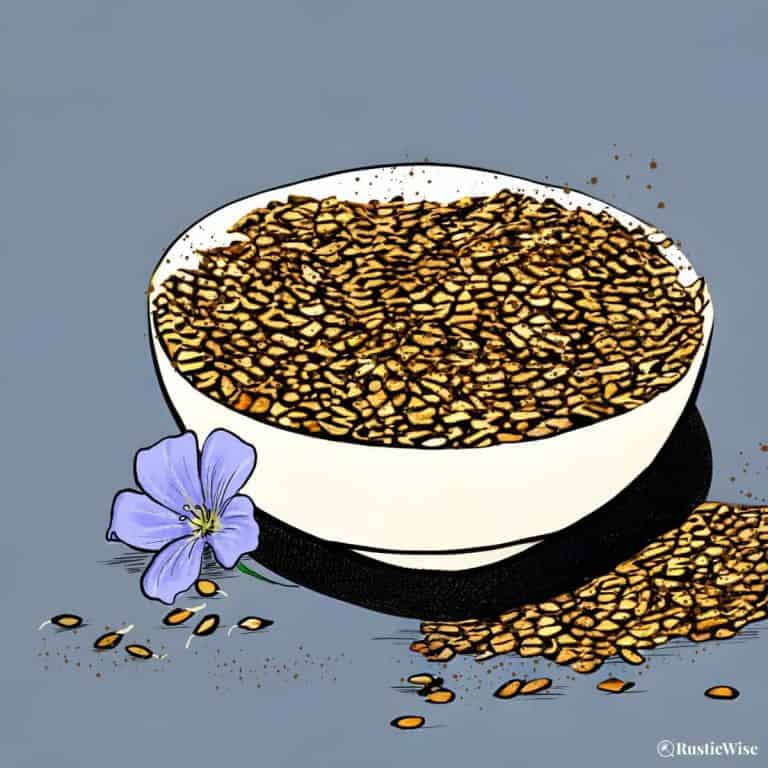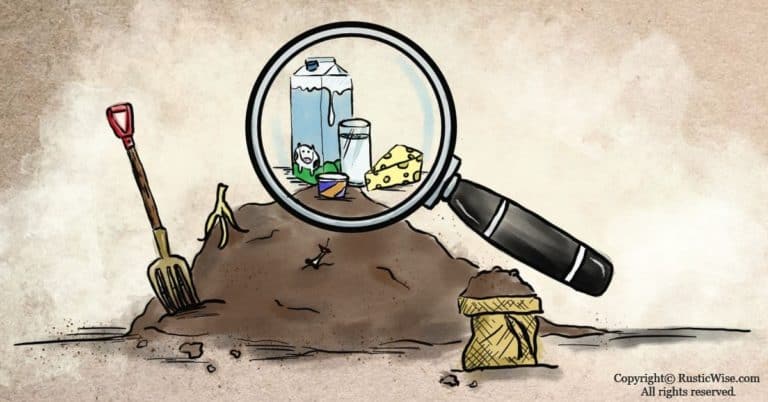10 Reasons Why Your Sprouts Smell Bad
It’s a bummer. You spend all that time and effort trying to grow sprouts only to end up with a smelly mess. So what makes sprouts smell bad? Well, if there’s a funky smell, it’s a sign that there’s something growing there that shouldn’t be—namely microbes and bacteria. There are a number of factors that contribute to smelly sprouts during the sprouting process: mainly poor drainage, poor airflow, or improper rinsing.
We’ll take a closer look at all the reasons why your homegrown sprouts may smell bad below.
Don’t give up on sprouting if you have a bad batch. Sometimes, smelly sprouts are a result of bad seeds (no fault of your own!). Growing sprouts is one of the easiest, and best ways to add a dose of healthy greens to your diet.
For safety’s sake, please don’t eat a batch of sprouts that smell bad. Trust your nose. If something smells funky, it’ll probably taste funkier. And we don’t want any foodborne illnesses, do we?
And just to be clear, this post is about sprouts not microgreens. If you’re confused about the two, you can read about their similarities and differences here. Basically, sprouts are the germinated seed of a plant. They’re eaten whole: seed, root, and shoot. Microgreens, on the other hand, are harvested just above the soil line and the seed leaves and stems are eaten.
How to properly store sprouts
Sprouts should be kept refrigerated and used within several days.
- Store-bought sprouts: The National Health Service (NHS) in the UK says to consume raw sprouts within two days and to only eat raw sprouts labelled “read to eat.”
- Homegrown sprouts: Before storing in the fridge, ensure your sprouts are well-drained. Use a colander, and pat dry with a paper towel. For longer shelf life, keep sprouts in a container with air holes such as a perforated plastic bag, or a ventilated Tupperware container. We find homegrown sprouts keep up to a week this way.
Why do my sprouts smell bad?
Like all foods with a short shelf life, your nose is often the first to alert you of potential danger. When sprouts develop a noticeably bad odor, it’s a sign that either the sprouts are past their “Best By” date, and/or harmful pathogens have developed in the sprouts.
Sprouts are especially susceptible to developing foodborne illnesses. This has to do with the way in which they’re grown—in warm and humid conditions—a breeding ground for harmful bacteria.
The two most common forms of bacterial pathogens found in sprouts are salmonella and Escherichia coli (E. coli). Needless to say, consuming sprouts (or any other type of food) contaminated with these pathogens may cause illness, and in severe cases, death.
So, whether you have store-bought or homegrown sprouts, please don’t eat sprouts that smell bad!
As to the actual contributing factor(s) that causes sprouts to grow bacteria, I wish there was an easy black-and-white answer as to why your homegrown sprouts smell bad. Unfortunately there isn’t. Often it’s a combination of one or more factors.
There are several key steps to successfully growing a batch of (smell-free) sprouts.
Let’s troubleshoot together.

Credit: Yay Images
Here are 10 reasons why your homegrown sprouts may smell bad (in no particular order):
1) Poor quality seeds
You may have a batch of smelly sprouts through no fault of your own if you have poor quality seeds.
No, you don’t need special sprouting seeds. You might have success growing sprouts from a packet of regular ol’ seeds. However, we strongly recommend sprouting seeds for best results.
Why?
Sprouting seeds purchased from a reputable supplier are tested and certified free of dangerous forms of pathogens commonly found when sprouting. The U.S. Food & Drug Administration (FDA) estimates that between 1996 and 2018, more than 2,600 cases of sprout-related foodborne illnesses occurred. The culprit? Contaminated seeds.
Sprouting suppliers understand the growing process (soil-free, ample periods of time sitting at warm and humid conditions, etc.). They have adjusted their procedures accordingly. Those other gardening seeds are conditioned to germinate under normal gardening conditions: with soil, water, and plenty of sunlight.
2) Improper seed storage
Have you had your seeds for years without using them? Seeds have a “best by” date. Your package of sprouting seeds should have this labelled. While you may still sprout a batch of old broccoli seeds for example, the results won’t be nearly as good. Most sprouting seeds are good for 5 years or so.
Have you stored your seeds properly? Keep seeds in a cool, dry, dark environment.
3) Poor rinsing
Prior to soaking sprout seeds, you must rinse them. And rinse them well. If the water you’re using is contaminated, or if you didn’t rinse them thoroughly, bacteria or pathogens may linger.
4) Improper initial soaking
Presoaking sprouting seeds is an essential step. You don’t need to worry so much about the amount of water used—seeds will only soak up as much water as they need.
However, you can soak seeds for too long. It’s best to follow the instructions carefully on the package as each seed variety may have different recommended soaking times at different water temperatures.
When you soak your seeds, you’re kickstarting the germination process and bringing a dormant seed to life. Over-soaking your seeds provides a bad start to the growing process which may lead to mold growth.
5) Improper or irregular rinsing
Rinsing sprouts regularly is an important part of the sprouting process. Generally, most sprouts require rinsing two or three times a day.
While we’re no fans of wasting water, healthy sprouts require a liberal use of water to keep moisture levels up, and to remove any bacteria build-up. Besides, all plants require water to grow healthy and tasty, and sprouts are no different.
If sprouts don’t have adequate water, or aren’t rinsed regularly, they dry out and die.
Remember to rinse regularly with cool water.
6) Insufficient drainage
Once you’ve thoroughly rinsed your sprouts, it’s vital to drain them. Sprouts sitting in excess water become a health hazard, and may lead to mold growth.
So be patient, and allow all water to drain. If you’re growing your sprouts in jars, tip the jar at various angles to allow all water to drain. We found it helps to place the jar in a larger bowl or colander at different angles until sufficiently drained.
Other types of sprouters may get clogged with small seeds. Use a toothpick to poke out any debris.
Otherwise, do whatever you need to do to remove excess water!
7) Poor air circulation
Just like other plants and vegetables, sprouts require fresh air to grow. Avoid keeping your sprouts in a dark cupboard. While you don’t want too much sunlight warming up your sprouts, leaving sprouts out in the open where there’s plenty of airflow is preferable.
8) Cleanliness (or lack thereof)
Most people get very defensive when you suggest that they may need to up their cleaning game. So, we’re not judging, okay?
The truth is, sprouts require a very sanitary growing environment. Much more so than say, your average tomato plant.
Ensure you are thoroughly cleaning your sprouting equipment before and after each grow cycle. Some people swear on using bleach, while others prefer hydrogen peroxide. Others find plain soap and water works well too. Whatever cleaning method you select, clean thoroughly!
Another important factor to consider is the cleanliness of the water you’re using to rinse with. If you have contaminated water, or have hard water, you may need to switch to filtered water.
9) Warmer growing conditions
Whether you live in a hot climate, or were just experiencing a bit of summer heat, room temperature plays a key role in growing healthy sprouts.
Ideally, according to Oregon State University, keep sprouts at 70-80 degrees Fahrenheit (21-27 degrees Celsius), or roughly room temperature throughout the sprouting process.
Sprouts don’t like the sweltering heat, but certain types of bacteria and mold do. Keep sprouts at around room temperature to keep the nasties at bay.
10) Fruit flies
Pesky fruit flies are a part of growing fresh produce. While we’ve never personally experienced too many problems with fruit flies in our sprouts, they can become problematic if you notice a lot of them flying in and around your sprouts and potentially laying eggs on your sprouts.
To keep fruit flies (and their potential offspring) away from, and possibly contaminating your sprouts, use this old farmer’s trick. Find a glass jar and fill with an inch or so of vinegar (white vinegar should work fine, but flies really seem to like apple cider vinegar). Then make a paper funnel and place it at the top of the jar. Instant trap!
Hopefully this helped narrow down the source(s) of your smelly sprouts. Hopefully, you’ll have better luck with your next batch!
Other FAQs about smelly sprouts
Are broccoli sprouts supposed to smell bad?
We’re all probably familiar with the smell of mature broccoli plants. Mature broccoli has a slight, distinct, earthy odor. Broccoli belongs to the brassica family of vegetables that also includes cauliflower, cabbage, bok choy, and Brussels sprouts.
So what about broccoli sprouts? Should they smell bad? No, broccoli sprouts should not smell bad! They may smell like regular broccoli (which has a very subtle, slightly sulfuric smell normal of brassicas, especially before rinsing). But the smell shouldn’t be disgusting. Broccoli sprouts really shouldn’t have much of an odor at all.
If you smell anything pungent, or strongly sulfuric, it’s time to discard that batch of broccoli sprouts! Broccoli sprouts are more susceptible to moisture issues, so be sure you’re doing a good job of rinsing and draining.
Another tell-tale sign that broccoli sprouts have gone bad is the appearance. Normally, they should have a yellow green color on their leaves with white shoots; however bad broccoli sprouts may have fuzzy growth appearing at the tops.
Mung beans smell
Mung beans are a commonly grown sprout. However, when they start to smell, they smell awful! Some compare it to the smell of death.
If mung beans are fresh, and grown in proper conditions, they shouldn’t smell much like anything. Chances are, if your mung bean sprouts smell, they’ve probably gone bad.
Discard any mung bean sprouts with a rotten smell. They’ll likely look slimy.
What to do to reduce the smell of sprouts
Some sprouts like broccoli tend to emit a slight sulfuric odor naturally. To reduce the smell of certain types of sprouts, try using a sprinkle of citric acid powder. Citric acid is a food-safe, natural acid.
It may help reduce spoilage in sprouts. Add about 1 teaspoon per quart of water when rinsing your sprouts.
The takeaway
There are many reasons why your homegrown sprouts smell bad. The most common reasons are inadequate drainage, improper rinsing, and poor air circulation.
Good, healthy sprouts should not have any pungent odors. If your store-bought or homegrown sprouts smell funky, it’s time to chuck them!

Author: Josh Tesolin
Josh is co-founder of RusticWise. When he’s not tinkering in the garden, or fixing something around the house, you can find him working on a vast array of random side projects.

